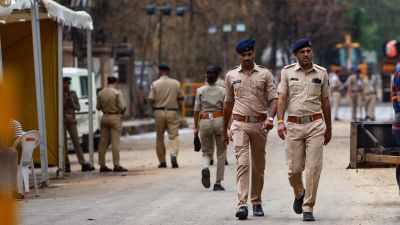Centre withdraws forest plea
In a volte face, the Government has withdrawn an application filed by the Ministry of Environment and Forests challenging the court8217;s...

In a volte face, the Government has withdrawn an application filed by the Ministry of Environment and Forests challenging the court8217;s wisdom in dealing with the omnibus forest case. What started with a small postcard petition complaining about forest violation in southern India has led to many landmark orders that have defined the way forests are conserved today.
Former Secretary Ministry of Environment and Forests Prodipto Ghosh had filed the application in May this year with Additional Solicitor General Vikas Singh. It pleaded for disposing of the original Godavarman Thirumalpad petition and to vacate the interim orders passed by the court in the same matter.
On Friday, when it came up for hearing in the Supreme Court, the Solicitor General said he would 8220;not like to press this application.8221; Amicus Curiae Harish Salve had drawn the attention of the court to this saying it was 8220;half an attack on the court and half an attack on me.8221;
Singh is no longer the counsel for the MoEF after the aggressive stance he took against the court in several environmental cases.
Since 1995, the Bench headed by the Chief Justice has passed several interim orders based on the same case. Vital clarifications on forests, inventorisation of forest land, harmonising number of wood-based industries with sustainable capacity of forests and stemming destruction of forests in the hills have all been dealt with by the Supreme Court. It set up the Central Empowered Committee to assist the court in hearing the flood of application related to forestry.
8220;Over 1,700 interlocutory application have been heard till date and many are still being filed. Such large numbers testify to the fact that the separation of the powers between different organs of the Government and mutual respect is being eroded,8221; said the petition. The Government was of the view that the court had been lead by 8220;views/suggestions/reports of non-experts which were framing opinion on scientific forestry matters8221;.
In a clear attack on the Amicus, the petition went on to say: 8220;The records of these hearings clearly show that advocates who are experts in law, not in forestry, and social activists, who may espouse special causes without any background of the scientific issues, have tried to influence the hearings in the cases through submissions on aspects which are in the domain of forestry science.8221;
The affidavit added that the situation may accentuate poverty and social unrest.
The then secretary pointed to two 8220;major weaknesses8221;: One, excessive reliance on opinions/suggestions of non-experts. Second, the opinions from non-experts may ring alarm bells which may, however, prove false after in-depth scrutiny of facts.
The affidavit also criticised the landmark order of the court in December 1996 that had said 8220;felling of trees in all forests is to remain suspended except in accordance with the working plan of the state Governments as approved by the Central Government.8221; It argued that by centralising the approval of the working, the dictum of scientific forest management was undermined.
The Government petition said the picture of 8220;severely depleting forests8221; put forward to the court ignored the increase in improvement of the forest and tree cover in the country. When the Government submitted its writ petition, the court8217;s reaction was eagerly awaited. On Friday, the Government decided to play safe and withdrew the petition before arguments could begin.
- 01
- 02
- 03
- 04
- 05































